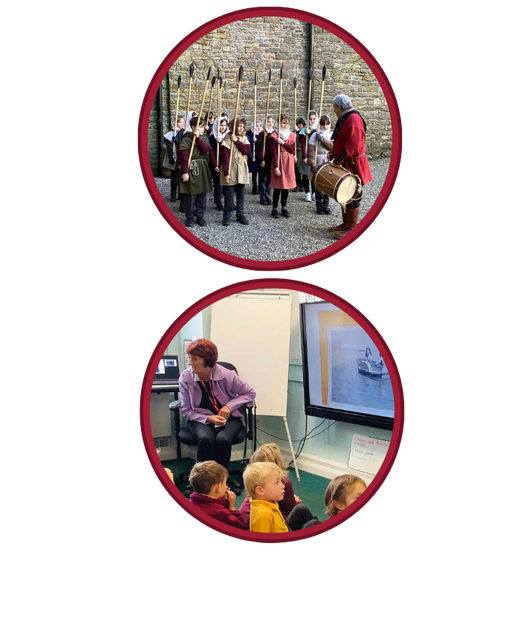History
Subject Rationale
At Stanbury Village School, our history curriculum is carefully designed to provide pupils with a rich and coherent understanding of Britain’s past and the wider world, inspired by the National Curriculum and OFSTED research. We aim to foster pupils’ curiosity about history by developing both substantive knowledge—such as key historical events, abstract terms like ‘empire’ and ‘civilisation’—and disciplinary knowledge, which involves understanding how historians study the past and construct historical accounts. This dual focus ensures pupils develop critical thinking skills, enabling them to ask perceptive questions, weigh evidence, and appreciate the complexity and diversity of human experiences across time.
Our curriculum follows a spiral design, revisiting key themes and concepts at increasing levels of complexity throughout pupils’ progression in school. This approach supports pupils in building secure and interconnected knowledge by reinforcing prior learning and deepening their understanding over time. By carefully selecting core knowledge that is essential for future learning, we help pupils make meaningful connections across historical periods and contexts. This progression is supported by a balance of overview and depth studies, enabling pupils to grasp broad developments as well as the nuances of specific historical moments, thus preparing them for more advanced study at secondary level.
Teaching at Stanbury prioritises active historical enquiry, encouraging pupils to engage with primary sources, artefacts, and diverse interpretations of the past. We provide rich, hands-on experiences such as visits to local heritage sites and opportunities for role play and debate, which bring history to life and develop pupils’ disciplinary skills. Our curriculum is inclusive and differentiated, ensuring all pupils can access challenging and meaningful learning. Through this carefully planned and ambitious curriculum, pupils gain not only a strong factual foundation but also the skills and perspectives needed to understand the past’s relevance to their own identity and the world today.






